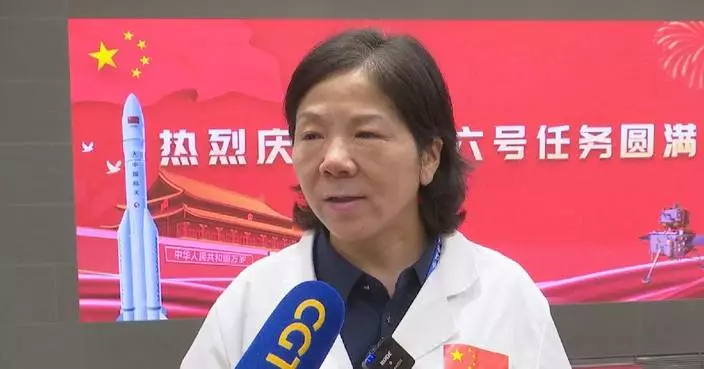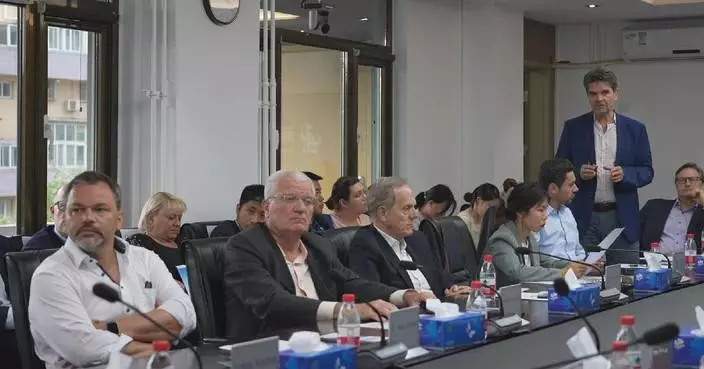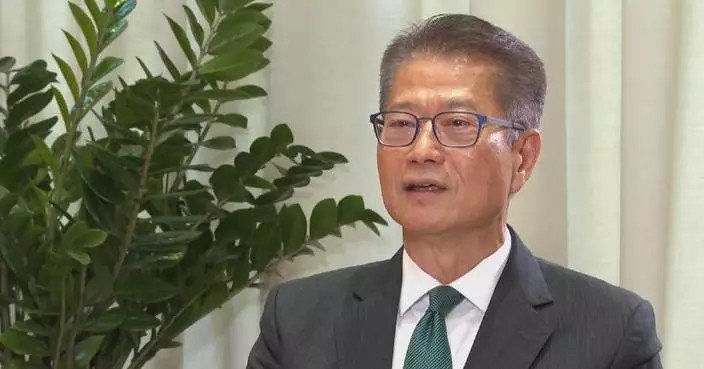Germany's Economy Minister Robert Habeck joined celebrations for the 30-year anniversary of the AHK (Chamber of Commerce Abroad) Greater China in Shanghai on Saturday.
AHK Greater China is part of the German Chambers of Commerce Worldwide Network.
Business representatives from both countries joined the celebrations, sharing insights on future market opportunities, innovation and investment.
"The 30 years' economic progress in China, the last 30 years was a true success story. China has become Germany's most important trading partner. We have similar economies, both are export-orientated countries. The production in China for the world and Germany for China went hand in hand, and all this was made also by the work of the AHK," said Habeck, Germany's Minister for Economic Affairs and Climate Action and Vice Chancellor.
"A chamber will always be required, because it not only enables business really connecting people, you see it here, dear minister, and this is how we create communities, this is also how we create friendship among Chinese and German companies and people," said Clas Neumann, chairman of the Board of Directors of the German Chamber of Commerce in east China, at the ceremony.
Following his visit to Shanghai, the German vice chancellor will continue his trip in east China's Hangzhou.
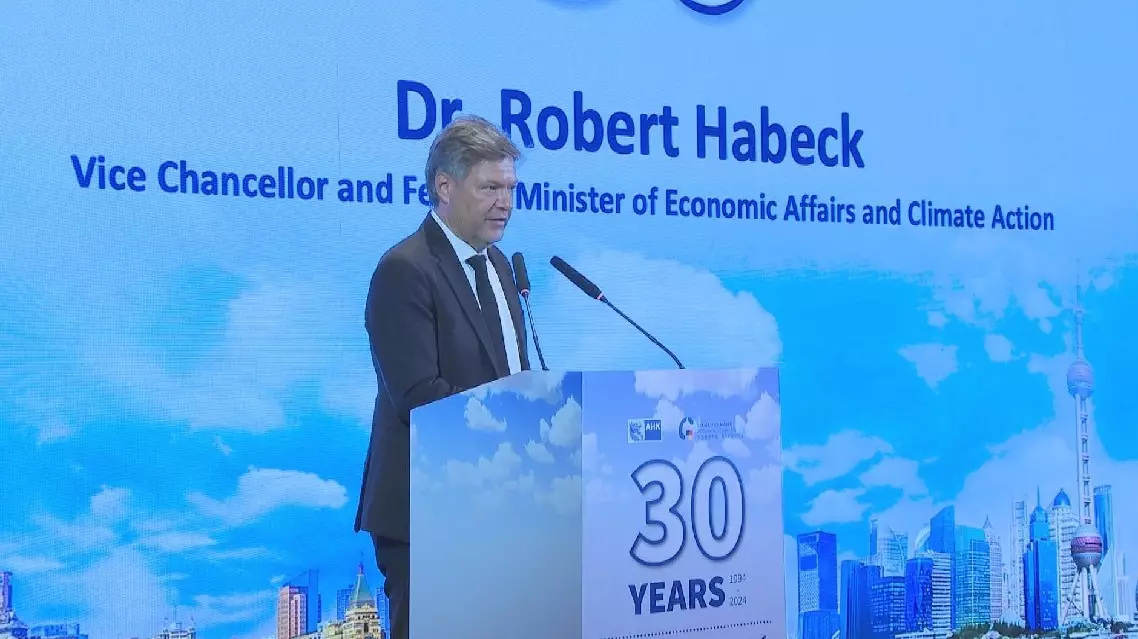
German economy minister joins ceremony marking 30-year anniversary of chamber of commerce
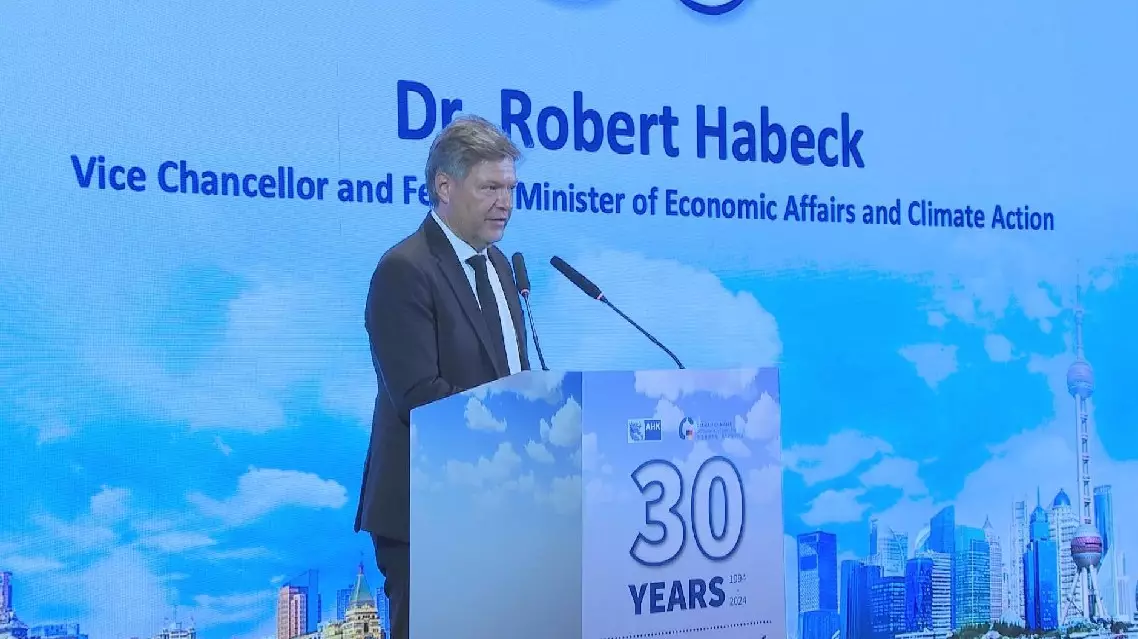
German economy minister joins ceremony marking 30-year anniversary of chamber of commerce
The Five Principles of Peaceful Coexistence have played an crucial role in ensuring equal status and development opportunities for all countries around the world and in developing equal relations between China and Latin American countries over the past seven decades, said a Brazilian professor in an interview with China Global Television Network (CGTN).
Put forth by late Premier Zhou Enlai in 1954, the five principles are mutual respect for sovereignty and territorial integrity, mutual non-aggression, mutual non-interference in each other's internal affairs, equality and mutual benefit, and peaceful coexistence.
Over the past 70 years, they have been embraced by the international community and have become basic norms governing international relations and fundamental principles of international law.
Out of the five principles, the one concerning sovereign equality has gained broad international recognition over the past seven decades. According to a CGTN survey, some 80.8 percent of the respondents believe that countries should uphold equality and mutual benefit and oppose hegemony, power politics and arbitrary sanctions against other countries.
"After China formulated those principles, it's crucial for understanding how countries started to position themselves, not in a hierarchical way, but trying to advocate, for instance, throughout the 1960s for more equality: equality in terms of development, equality in terms of opportunity, until it culminated nowadays in approaches towards development like what China has been doing in terms of the Belt and Road Initiative, the action of the New Development Bank. This is a clear offspring of those principles and specifically of the principle of equality," said Vinicius Vieira, professor of international relations at the University of Sao Paulo.
Vieira pointed out that Latin America's relations with China are more equal than its relations with the United States and European countries have ever been.
"I think that's crucial, between China and Latin American countries, to say that their relationship is grounded on a much more horizontal basis than the grounds of the relationship between, let's say, Latin America and former European colonizers or former European investors in the region that used to have much more influence here, and between Latin America and the United States," Vieira said.

Five Principles of Peaceful Coexistence key in guiding China-Latin America relations: Brazilian professor







